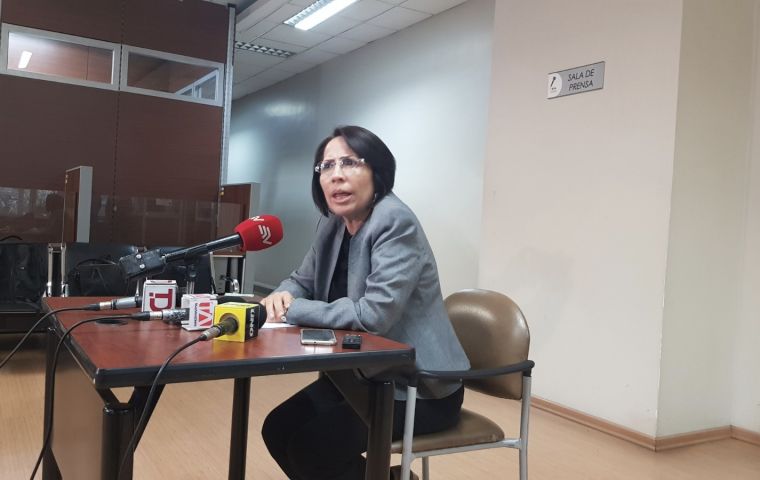MercoPress. South Atlantic News Agency
Argentina grants political asylum to former Ecuadorian Minister convicted of corruption
 Duarte was sentenced to 8 years in prison for taking bribes in a case linked to the Odeqbrecht scandal while she was Transport Minister under then-President Correa
Duarte was sentenced to 8 years in prison for taking bribes in a case linked to the Odeqbrecht scandal while she was Transport Minister under then-President Correa Citing humanitarian grounds, the Government of Argentina has granted diplomatic asylum to the Ecuadorian national Maria de los Angeles Duarte Pesantes, a former official under former President Rafael Correa.
Duarte has been convicted of corruption and faces years in an Ecuadorian jail, while Correa himself is in exile in Belgium.
Argentina's Foreign Ministry notified the Ecuadorian Embassy in Buenos Aires late Thursday about the decision regarding Duarte, who has been sheltering in Argentina's diplomatic mission in Quito since August 12, 2020, together with her 11-year-old son and the latter's Argentine father.
Buenos Aires also based its decision on the recent UN Special Rapporteur's brief on the independence of judges and lawyers in that country, which expressed the international mission's concern over “violations of due process and other judicial guarantees,” according to Infobae.
Argentina's Foreign Ministry also claimed that President Alberto Fernández's administration's decision fell under the 1954 Convention on Diplomatic Asylum and the American Convention on Human Rights.
However, Quito argued that “the conventions governing diplomatic asylum exclude the possibility of granting asylum to persons convicted of common crimes.”
“Bribery is criminalized in the United Nations and Inter-American conventions against corruption,” Ecuador's Foreign Ministry also argued. Duarte has been sentenced to eight years in jail for bribery while she was Transport Minister under Correa in a case linked to the Odebrecht transnational scandal, for which the former head of state has also been convicted, but has managed to skip jail by staying as a refugee in Brussels.
In Kirchnerite circles, these convictions are part of the so-called “lawfare,” a name given to an alleged political strategy consisting of targeting opponents through criminal cases against them, a view which is also shared by President Fernández, who has made his point clear when visiting Brazil's now President-elect Luiz Inácio Lula Da Silva during his prison stay. Lula was also jailed for corruption but the sentence against him was eventually overturned by the Supreme Federal Court (STF).
Duarte's case is to be discussed next week in Quito between legal teams from both countries in order to determine whether the figure of political asylum, a protection devised for people whose lives or freedom are in danger from persecution or threats from another State, applies to Duarte.




Top Comments
Disclaimer & comment rulesCommenting for this story is now closed.
If you have a Facebook account, become a fan and comment on our Facebook Page!